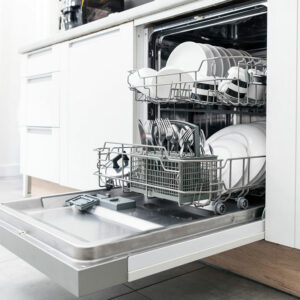6 potentially harmful household products that can affect the eyes

According to the American Academy of Ophthalmology, nearly half of all eye injuries happen at home. Whether it’s a cleaning product that burns your eyes or a potential hazard around your home, it is vital to be aware of potentially harmful household products that could hurt your eyes and affect your vision. Here are six products that you must take precautions with when using them to protect your and your loved ones’ sight:
- Cleaning supplies: Cleaning products often comprise chemicals such as ammonia, bleach, triclosan, and formaldehyde, which can lead to severe irritation, inflammation, and burning if they come into contact with your eyes. Be sure to read the manufacturer’s instructions carefully before use. Avoid mixing two or more different products. When using cleaners, remember to keep the area well-ventilated to get rid of any toxic fumes, spray with the nozzles facing away from your face, refrain from using strong chemicals in small spaces, and use safety gear, such as goggles and gloves, when using products like oven cleaners, stain removers, degreasers, toilet cleaners, and other potent disinfectants.
- Mascara: Liquid eye products, such as mascara, can be home to many germs. Doctors recommend replacing these products every three months to reduce the risk of bacterial buildup that may cause eye irritation or inflammation. Small particles in powdered products such as eyeshadow or setting powder can also lodge under your eyelids, increasing your risk of infection. Be sure to wash off your makeup well before going to bed. Avoid using certain brands or products if the irritation persists.
- Screws and nails: If you’re handy around the house, or a keen DIY-er, be sure to use safety goggles during your projects, especially when using screws and nails. This is because wall or cement fragments may go flying during hammering or drilling, which poses a potential risk to your eyes.
- Contact lens case: Like most containers, your contact lens cases can develop a dirty film over time, even if you care for them properly. Using a dirty lens case can increase your chances of an eye infection or vision problems. Remember to clean your lens case with disinfectant and dry it upside down regularly. Swap out your case for a new one every three to six months.
- Candles: Candles can also cause your eyes to burn because of their fragrance. Many fragrances are made with potentially hazardous chemicals, such as acetone, linalool, and benzaldehyde, which can irritate the eyes, skin, and lungs and lead to severe infections. Switch over to unscented beeswax candles for a safer candle-burning experience.
- VOCs (Volatile Organic Compounds): VOCs are commonly found in solvents, paints, furniture, and carpets and can irritate the skin and eyes. They can also impact the quality of the air in your home. To reduce their occurrence in your home, switch to VOC-free cleaners, avoid using carpet cleaners and stain guards, and use a VOC air filter.
Ovens, another essential household appliance, can also pose a risk to the eyes due to its radiant heat, intense light, and hot vapors. Prolonged exposure to these factors, especially radiation or heat, may affect the front layer of the cornea and lead to issues like eye discomfort, pain, blurry vision, or watering. Implementing protective measures like ensuring proper ventilation and avoiding close proximity to working appliances can help minimize these hazards.
Several other household products can be potentially hazardous for your eyes. Some examples are shampoos and soaps with alkaline-based chemicals, insect repellents, laundry detergents, softener sheets, and lawn care chemicals. Switch to organic products with fewer chemicals that may irritate your eyes when possible.



